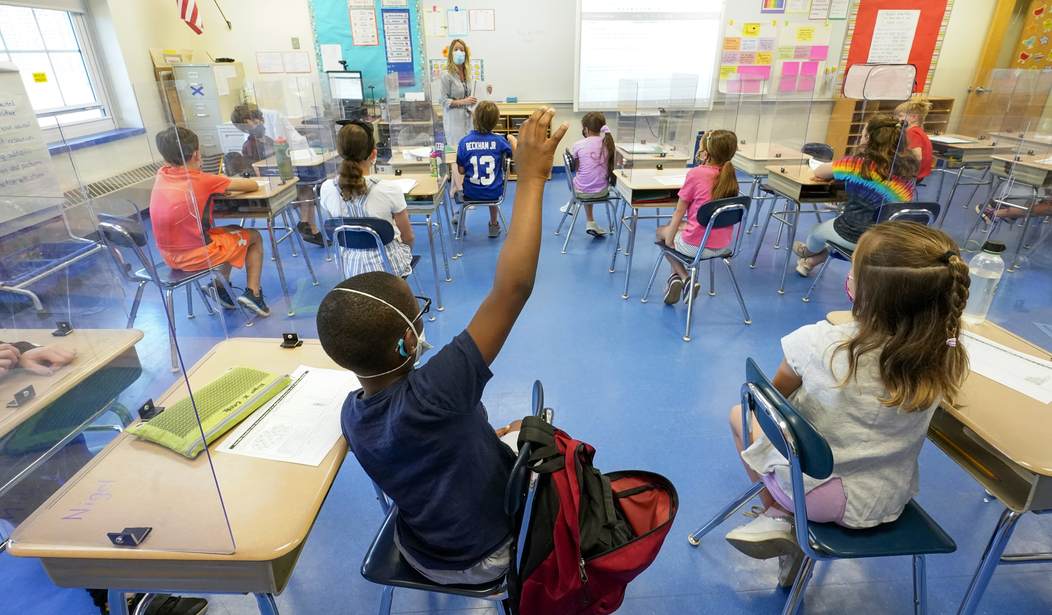In an interview with The New Yorker, race hustler Robin DiAngelo laid bare the central problem parents have with critical theories. DiAngelo discussed her new book Nice Racism, which does not seem to be doing as well as her previous pile of trash, White Fragility. It seems the moment for Americans to be interested in more racially charged discussion has passed.
Ideas based on critical theories are all we hear in the corporate media and spilling out of the Biden administration’s megaphone. Phrases such as systemic racism, diversity, equity, and inclusion are everywhere. Biden is even framing election security laws as systemically racist, a horrifically divisive tactic. Most Americans see this narrative as just not based in reality.
Related: NYT Editorial Bemoaning Prohibiting Critical Theories in Schools Is Completely Clueless
Regarding what most consider DiAngelo’s seminal work, White Fragility, not everyone was a fan. The passages and sections I have read seem impossibly reductive. You can quickly boil down her view to believing that people who look alike have a common set of experiences and perspectives. Even more absurd, she claims that only white people can fix the problems of people of color. That’s racist.
Her worldview robs all non-whites of agency, and it is a painstakingly obtuse articulation of her white savior complex. In a comparison of the work of Ibram X. Kendi and DiAngelo in 2019, Kelefa Sanneh wrote:
Unlike Kendi, who boldly defines racism, DiAngelo is endlessly deferential—for her, racism is basically whatever any person of color thinks it is. In the story she tells about the world, she and her fellow white people have all the power, and therefore all the responsibility to do the gruelling but transformative spiritual work she calls for. The story makes white people seem like flawed, complicated characters; by comparison, people of color seem good, wise, and perhaps rather simple. This narrative may be appealing to its target audience, but it doesn’t seem to offer much to anyone else.
DiAngelo has made millions peddling this nonsense in corporate America. In her latest book, she validates Sanneh’s point almost perfectly:
“In the workplace, the classroom, houses of worship, gentrifying neighborhoods, and community groups, Black people do interact with white progressives.” She continues, “We are the ones—with a smile on our faces—who undermine Black people daily in ways both harder to identify and easier to deny.”
In the New Yorker interview, columnist Isaac Chotiner noted many examples in DiAngelo’s new book from her experience as a corporate trainer. He specifically cites ones where she appears combative, offended, or shocked that participants disagree with her worldview. Her positions are openly collectivist and anti-individual. Chotiner addressed these elements very directly and forced DiAngelo to explain her worldview based on mean differences in outcomes and other social science data to push her collectivist ideas.
Recommended: Here’s How Critical Race Theory Activists Try to Pull The Wool Over America’s Eyes
The most important thing he noted was the tautology or unfalsifiable assertions that permeate DiAngelo’s work and critical theories in general. Put simply, disagreeing with her ideas, or those of any critical theorist, is itself proof of her claims. Chotiner asked several questions in this vein, challenging DiAngelo’s assumptions. For instance:
- “You have a list in your book of things that are racist, including some obviously racist things such as blackface. One of the things on the list is ‘Not being aware that the evidence you use to establish that you are “not racist” is not convincing.’ Is there a tautological aspect to this?”
This circular thinking inherent to critical theories is what parents see in K-12 classrooms all over the country. Ideas like DiAngelo’s that frame white children, boys, heterosexual teens, and Americans born here as members of the oppressor class and children of color, girls, gays, and immigrant children as powerless with no agency and subject to deliberate obstacles placed in front of them by their identified oppressors are rampant in the classrooms. Unlike DiAngelo’s audience, parents are not predominantly white progressives who buy into this nonsense. Parents reject this racial and other identity essentialism out of hand.
When educators use assertions based on critical theories in the classroom, if a child objects or disagrees, the teacher cites that very disagreement as proof that the child is guilty of whatever -ism or -phobic behavior under discussion. The curriculum using this lens does not present one idea, like DiAngelo’s, and an opposing view from another thinker at an appropriate age. Instead, the ideas and lens that DiAngelo and other purveyors of critical theories espouse are taught as normative beginning as early as kindergarten. Instructional materials position critical theories as fact.
Related: Objections to Critical Theories Are Not Merely a ‘Right-Wing’ or ‘White’ Phenomenon
When put into practice, these ideas are not as blatant as the way DiAngelo chastises her self-flagellating audience. Instead, they are insidious. In Williamson County, Tenn., parents spent 1,200 hours documenting how critical theories imbue the Wit and Wisdom curriculum taught to children in kindergarten through third grade. Ideas that encourage self-harm, violent imagery, and even racial slurs are presented in stories that the teachers’ materials use as a discussion prompt. Children are encouraged to discuss their feelings on the material, rather than to think critically about what they read.
We should relegate the ideas peddled by DiAngelo and other critical theorists to the university and corporations with navel-gazing CEOs who want to destroy any vestige of collegiality, teamwork, and ultimately productivity in their organizations. They must be forcibly removed from public schools by legislation and parental involvement. Parents have every right to insist that schools treat their children like the unique individuals they are and assume them to be capable of doing all of the necessary things to become productive and successful adults.










Join the conversation as a VIP Member